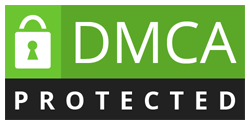Collateral (finance) -Simple Quick Loan
Collateral (finance) -Simple Quick Loan
Collateral (finance)
In financing agreements, collateral is the borrower's pledge of particular
property to a loan provider, to secure repayment of the loan. The actual collateral
serves as the lender's protection against the borrower's default—that is, this
can be used in order to offset the loan when the borrower fails to pay the main
and interest satisfactorily underneath the terms of the financing agreement.
The protection that security provides generally allows lenders to provide a
lower interest rate on loans which have collateral compared to the ones that do
not, because the danger of loss to the lending company is lower. The decrease in
interest rate can depend on several percentage points, with respect to the type
and value from the collateral.
If a borrower does default on the loan (due to financial distress or other event),
that borrower forfeits (gives up) the home pledged as collateral, along with
the lender then becoming who owns the property. In an average mortgage
loan transaction, for example, the real estate being acquired using the
help of the mortgage serves as collateral. If the buyer fail to pay back the
loan according towards the mortgage agreement, the lender may use the legal
process of foreclosure to acquire ownership of the property. A pawnbroker
is a common example of the business that may accept an array of items as
collateral.
Collateral (finance)
In financing agreements, collateral is the borrower's pledge of particular
property to a loan provider, to secure repayment of the loan. The actual collateral
serves as the lender's protection against the borrower's default—that is, this
can be used in order to offset the loan when the borrower fails to pay the main
and interest satisfactorily underneath the terms of the financing agreement.
The protection that security provides generally allows lenders to provide a
lower interest rate on loans which have collateral compared to the ones that do
not, because the danger of loss to the lending company is lower. The decrease in
interest rate can depend on several percentage points, with respect to the type
and value from the collateral.
If a borrower does default on the loan (due to financial distress or other event),
that borrower forfeits (gives up) the home pledged as collateral, along with
the lender then becoming who owns the property. In an average mortgage
loan transaction, for example, the real estate being acquired using the
help of the mortgage serves as collateral. If the buyer fail to pay back the
loan according towards the mortgage agreement, the lender may use the legal
process of foreclosure to acquire ownership of the property. A pawnbroker
is a common example of the business that may accept an array of items as
collateral.






















No comments